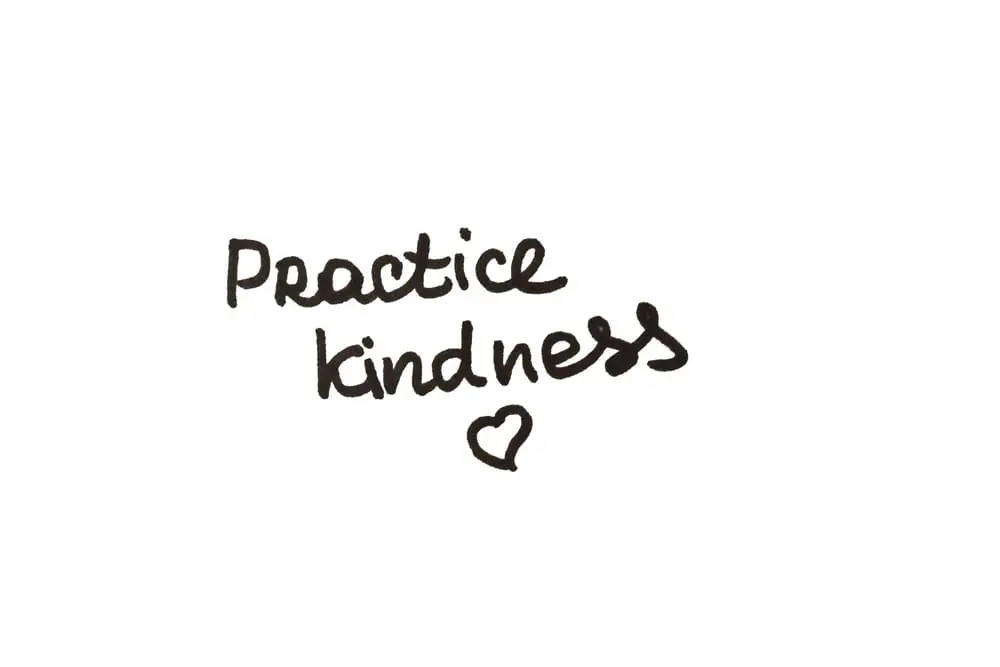Five Positive Aspects To Focus On This Week – Embracing Joy And Gratitude In Everyday Life. Find Out More In Our Latest Article!
THIS ARTICLE MAY CONTAIN AFFILIATE LINKS, MEANING I GET A COMMISSION IF YOU DECIDE TO MAKE A PURCHASE THROUGH MY LINKS AT NO COST TO YOU. PLEASE READ MY AFFILIATE DISCLOSURE FOR MORE INFO.
DON’T HAVE TIME TO READ THE FULL ARTICLE. HERE’S WHAT YOU ARE MISSING.
Millennial Credit Advisers blog loves discussing the positives of no debt, more savings, better credit, and increased income.
Life can feel overwhelming at times. Taking a step back and focusing on the positive can greatly improve our outlook.
Many good things happen around us every day, even when we don’t notice them immediately.
This week, we can focus on five key areas that often bring joy and meaning.
Appreciating connections with loved ones, nature’s beauty, personal accomplishments, acts of kindness, and opportunities for growth can give us reasons to be happy and hopeful.
Recognizing these positive aspects can help shift our mindset.
It allows us to see the good in our lives and our world.
This balanced perspective can lead to greater contentment and resilience in facing challenges.
Importance of Positive Focus

Focusing on the positive can significantly improve mental health and overall well-being. It helps people cope with stress, build resilience, and find more joy in daily life.
A positive outlook can lead to better relationships, increased productivity, and a greater sense of purpose.
Boosting Mood with Relationships
Strong social connections play a crucial role in maintaining a positive outlook.
Spending time with loved ones releases feel-good hormones like oxytocin and serotonin, which help reduce stress and anxiety.
Regular social interactions can provide emotional support during tough times.
They also allow people to share happy moments and celebrate successes together.
This shared joy can multiply positive feelings.
Many studies show that people with strong social ties are happier, healthier, and live longer.
Making an effort to nurture relationships can lead to a more positive and fulfilling life.
Peace through Nature’s Splendor
Nature has a unique power to calm the mind and lift spirits.
Spending time outdoors can lower stress hormones and blood pressure. It may also improve mood and self-esteem.
Even brief exposure to natural settings can have benefits.
A short walk in a park or a few minutes of bird watching can provide a mental boost.
Natural beauty can inspire feelings of awe and wonder.
These positive emotions can help put daily worries into perspective.
They may also increase feelings of connection to the world around us.
Regular time in nature can lead to a more positive and balanced outlook on life.
Fulfillment from Personal Achievements
Setting and reaching goals is a powerful way to build self-esteem and positive thinking.
Each success, no matter how small, can boost confidence and motivation, creating a positive cycle of achievement and growth.
Completing tasks gives a sense of control over one’s life. It can also provide a feeling of purpose and direction.
These factors are crucial to maintaining a positive mindset.
Recognizing personal progress helps build resilience.
It reminds people of their ability to overcome challenges. This can lead to a more optimistic view of future obstacles.
Celebrating big and small achievements is crucial for fostering a positive self-image and outlook.
Interpersonal Connections

Connecting with others forms a vital part of human happiness and well-being. Strong relationships provide emotional support and shared experiences that enrich our lives.
Strengthening Bonds
Building deeper connections takes effort and time.
Regular communication helps people stay close. This can include calls, texts, or in-person meetings.
Sharing activities creates fun memories and brings people together. Common hobbies or interests give topics to discuss.
Active listening shows others you care.
Pay attention and ask questions about their thoughts and feelings. Be open about your own life, too. This back-and-forth builds trust and understanding.
Small gestures can make a big impact.
Remember birthdays or send a quick “thinking of you” message. These acts show you value the relationship.
Support Systems
A strong support network helps people cope with life’s challenges. Family, friends, and community groups can all help.
Having people to turn to reduces stress and loneliness.
Different relationships meet different needs. Some friends offer practical help, while others provide emotional comfort. It’s good to have a mix of support types.
Giving support is just as important as receiving it.
Helping others can boost your mood and self-esteem. It also strengthens the bond between people.
Support groups connect people with shared experiences. They can be especially helpful for specific life events or health issues, and members often find comfort in not feeling alone.
Appreciating Nature

Nature offers a wealth of beauty and wonder. Taking time to notice the world around us can boost one’s mood and provide a sense of peace.
Seasonal Changes
Fall brings colorful leaves and crisp air. Winter creates snow-covered landscapes and cozy indoor moments—spring bursts with new growth and flowers. Summer offers warm days for outdoor fun.
Each season has its charm. Noticing these shifts can help us feel more connected to the natural world. It’s a chance to slow down and marvel at nature’s cycles.
Surrounding Beauty
Beauty exists everywhere, even in urban areas. Parks offer green spaces to relax, city gardens add color to concrete landscapes, and rooftop gardens create oases above busy streets.
Natural beauty isn’t limited to grand vistas.
A single flower pushing through a sidewalk crack shows nature’s resilience. Birds singing in the morning bring joy to any neighborhood.
Spotting these tiny wonders can brighten our day and remind us of our amazing world, no matter where we are.
Celebrating Personal Growth

Personal growth is an ongoing journey of self-improvement and development. It involves recognizing your progress, working towards goals, and adapting to new challenges. These aspects help build confidence and resilience.
Recognizing Achievements
Take time to acknowledge your accomplishments, big and small.
Keep a journal to track your progress and reflect on your successes. Celebrate milestones by treating yourself or sharing your achievements with others.
This practice boosts self-esteem and motivation. It also helps identify strengths and areas for improvement. Remember that growth is not always linear, and setbacks are part of the process.
Setting and Achieving Goals
Create SMART goals: Specific, Measurable, Achievable, Relevant, and Time-bound.
Break larger goals into smaller, manageable tasks. This approach makes progress more visible and attainable.
Use a planner or app to track your goals and deadlines.
Regularly review and adjust your goals as needed. Celebrate each step towards your objectives, no matter how small.
Learning and Adapting
Embrace a growth mindset. View challenges as opportunities to learn and improve.
Seek out new experiences and knowledge through books, courses, or workshops.
Ask for feedback from trusted sources and use it constructively.
Be open to change and willing to adjust your approach when needed. Practice self-reflection to identify areas for growth and development.
Remember that personal growth is a lifelong process. Stay curious and committed to continuous improvement.
Practicing Kindness

Kindness has the power to change lives and create a positive ripple effect. It can boost happiness, reduce stress, and build stronger communities. Small acts of goodwill and expressing gratitude can make a big difference.
Acts of Goodwill
Simple gestures can brighten someone’s day.
Offer a smile to a stranger, hold the door open for others, or send a thoughtful text to a friend or family member.
Volunteer at a local charity or donate to a cause you care about.
Consider helping a neighbor with yard work or grocery shopping. Compliment someone sincerely. Share your skills or knowledge with others who could benefit from it.
Pay it forward by buying coffee for the person behind you in line. Leave positive notes for coworkers or classmates.
Small actions can have a big impact on others’ lives.
Gratitude and Inspiration
Recognize the good things in your life.
Keep a gratitude journal and write down three things you’re thankful for daily. This practice can help you focus on the positive aspects of life.
Express appreciation to others. Thank someone for their help or kindness. Let a friend know how much you value them. Acknowledge the efforts of service workers you encounter.
Share inspiring stories or quotes on social media. Be a positive influence in your community.
Encourage others to practice kindness, too. Your actions can motivate people around you to be more compassionate.
Look for ways to show kindness to yourself as well.
Practice self-care and treat yourself with the same compassion you show others. This can help you maintain a positive outlook and continue spreading kindness.
Embracing Challenges

Facing difficulties head-on can lead to personal growth and increased resilience. Challenges provide chances to learn new skills and discover inner strength.
Personal Development
Challenges push people out of their comfort zones. This can spark creativity and innovative thinking.
When faced with obstacles, individuals often find new ways to solve problems.
These experiences can boost confidence and self-esteem.
Overcoming hurdles proves that one is capable of more than one might have thought. Each challenge conquered adds to a person’s toolkit of skills and knowledge.
Learning to embrace challenges can also improve decision-making abilities.
It encourages critical thinking and careful analysis of situations. This mindset shift can lead to better choices in both personal and professional life.
Resilience and Strength
Dealing with challenges builds mental toughness. It teaches people to bounce back from setbacks and keep moving forward.
This resilience is a valuable life skill that helps in many situations.
Facing difficulties head-on can reveal hidden strengths. People often surprise themselves with what they can handle when put to the test.
These discoveries can be empowering and boost self-confidence.
Overcoming challenges also builds emotional strength. It can lead to better stress management and coping skills.
This emotional resilience helps people stay calm and focused in tough times.
Embracing challenges can foster a growth mindset. This outlook sees difficulties as chances to improve rather than roadblocks.
It encourages lifelong learning and adaptability.
Disclaimer: Millennial Credit Advisers is not a licensed credit service provider or financial advisor. We don’t offer credit repair, debt management, or legal services. Educate yourself on saving, reducing debt, and managing credit for economic improvement. Understand credit reports, scores, and financial products. Consult a financial advisor for personalized advice. Track your progress for a better credit journey.
Written content: Please view our full AI Use Disclosure.
We improve our products and advertising by using Microsoft Clarity to see how you use our website. By using our site, you agree that we and Microsoft can collect and use this data. Our privacy policy has more details.














